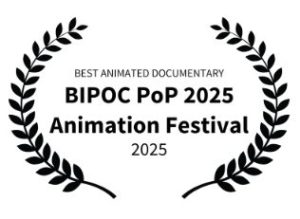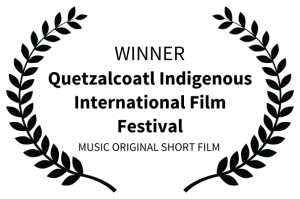Dr. Allan Downey is Dakelh (Nak’azdli Whut’en), a Canada Research Chair, and a Member of the Royal Society of Canada’s College of New Scholars, Artists, and Scientists. An Associate Professor in the Department of History and Indigenous Studies Department at McMaster University, Allan is the author of The Creator’s Game (UBC Press, 2018), which received several national awards including the 2019 Canada Prize from the Canadian Federation for the Humanities and Social Sciences. Allan is also an award-winning filmmaker and co-created the films Deskaheh (2024) and Rotinonshón:ni Ironworkers (2020). A former Fulbright Fellow at Columbia University, Allan established the Indigenous youth mentorship program Resurgent Histories: The Indigenous History Lab at McMaster University in 2023. The lab functions as a collaborative hub connecting Indigenous youth, artists, scholars, and community-based organizations to manifest Indigenous histories by creating digital animations for public dissemination. Beyond his research and teaching activities, one of Allan’s greatest passions is working with Indigenous youth, and he splits his time volunteering for Indigenous communities throughout the year.
Deskaheh (2024)
The film Deskaheh weaves the profound story of Haudenosaunee leader Deskaheh Levi General’s travels from Six Nations of the Grand River to the League of Nations between 1923 and 1925, where he sought to gain international recognition of the Haudenosaunee’s sovereignty. Co-created by Allan Downey, Tekenikhon Doreen, Jersee Hill, Kira Gibson, and Saki Murotani, Deskaheh is the result of an Indigenous youth mentorship program at McMaster University titled Resurgent Histories, which empowers Indigenous youth to create digital animations that bring Indigenous histories to life for public education. Find out more about the mentorship program at https://resurgenthistories.humanities.mcmaster.ca/ or view the film at https://www.youtube.com/@ResurgentHistories
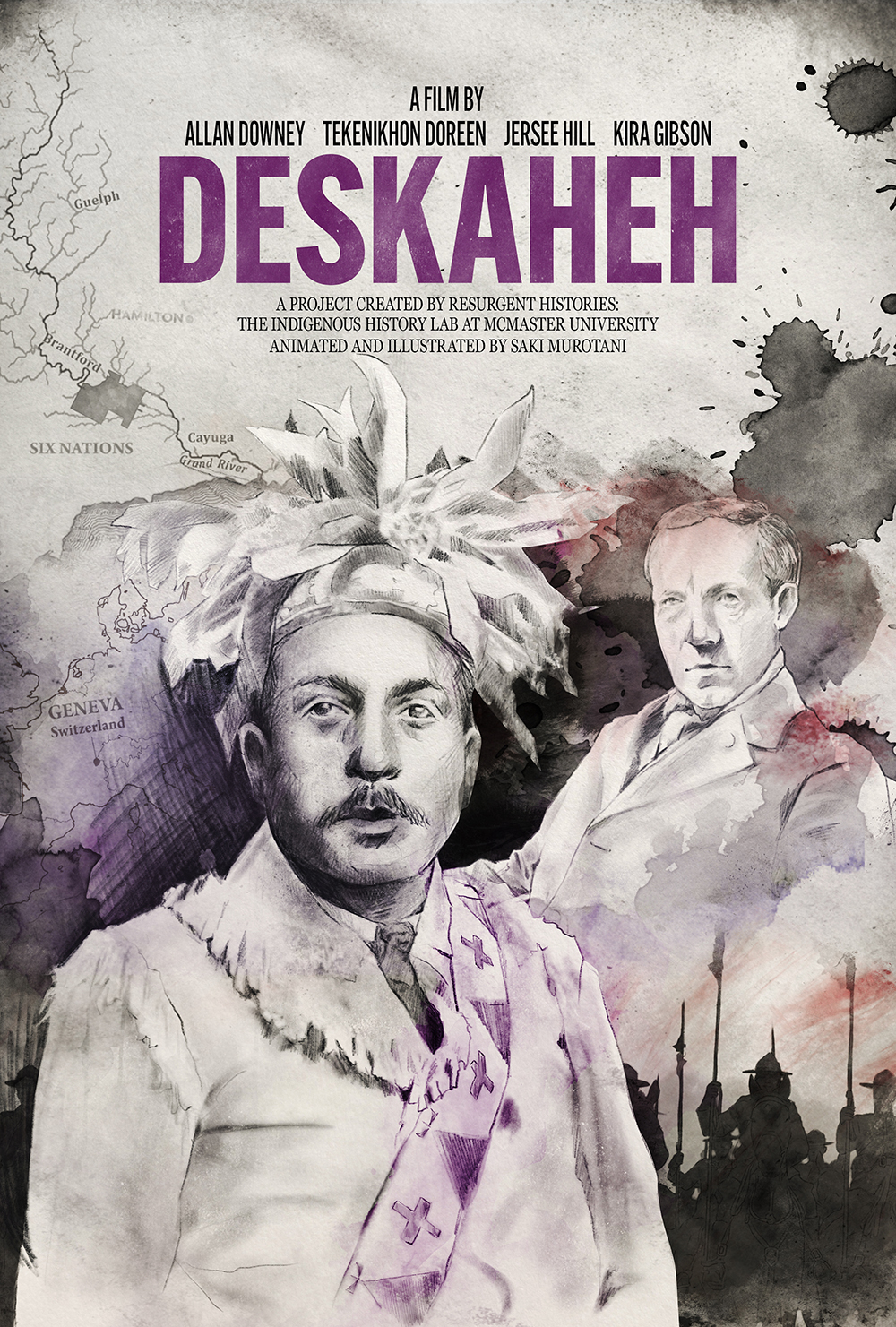
Deskaheh wins Best Animated Documentary Award
Co-directed by Allan Downey, Tekenikhon Doreen, and Jersee Hill, with animations by Saki Murotani, the film Deskaheh received the 2025 Best Animated Documentary Award from the BIPOC PoP Animation Festival at the University of Texas at Austin.
Deskaheh wins Best Music in a Short Film
With sound editing by Allan Downey, Saki Murotani, Eric Anderson, and music contributed by Logan Staats and the Six Nations Women’s Signers, the film Deskaheh received the 2025 Best Music in a Short Film Award from the Quetzalcoatl Indigenous International Film Festival (Mexico).
New Article: “Indigenous Brooklyn: Ironworking, Little Caughnawaga, and Kanien’keha:ka Nationhood in the Twentieth Century”
Beginning in the 1880s, ironworking quickly became a principal source of employment for Haudenosaunee men who traveled to jobs throughout Canada and the northeastern United States. By the 1920s, Haudenosaunee families from Ahkwesáhsne and Kahnawà:ke began relocating to Brooklyn, where they opened a string of boardinghouses and established a new community: “Little Caughnawaga.” Together, ironworking and “Little Caughnawaga” became a nexus between Kanien’kehá:ka family life, nationhood, and self-determination. This is particularly significant when we consider that Indigenous peoples were conceptually and physically removed from urban spaces that were reframed as “modern” and juxtaposed to perceptions of “Indian authenticity.” Yet Kanien’kehá:ka citizens were at the center of building these sites of “modernity,” an undertaking that influenced their own re-articulations of Kanien’kehá:ka nationhood. Indigenous Brooklyn
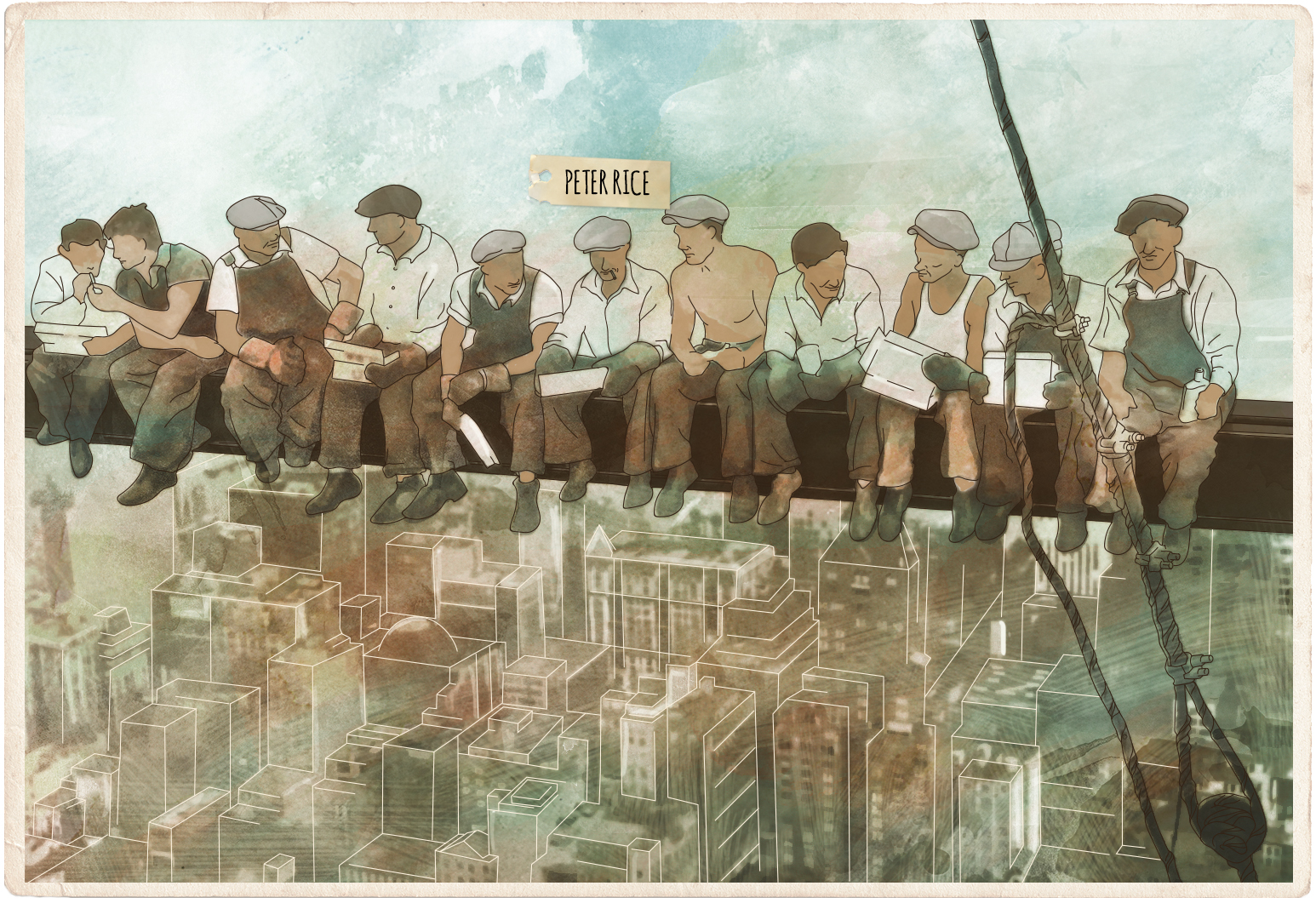
Rotinonhsión:ni Ironworkers Now Available
The award-winning digital animation Rotinonhsión:ni Ironworkers is now available. The video tells the story of Indigenous ironworkers from Kahnawà:ke who, for the last 140 years, have helped create some of North America’s most iconic landmarks. https://www.indigenousironworkers.com/
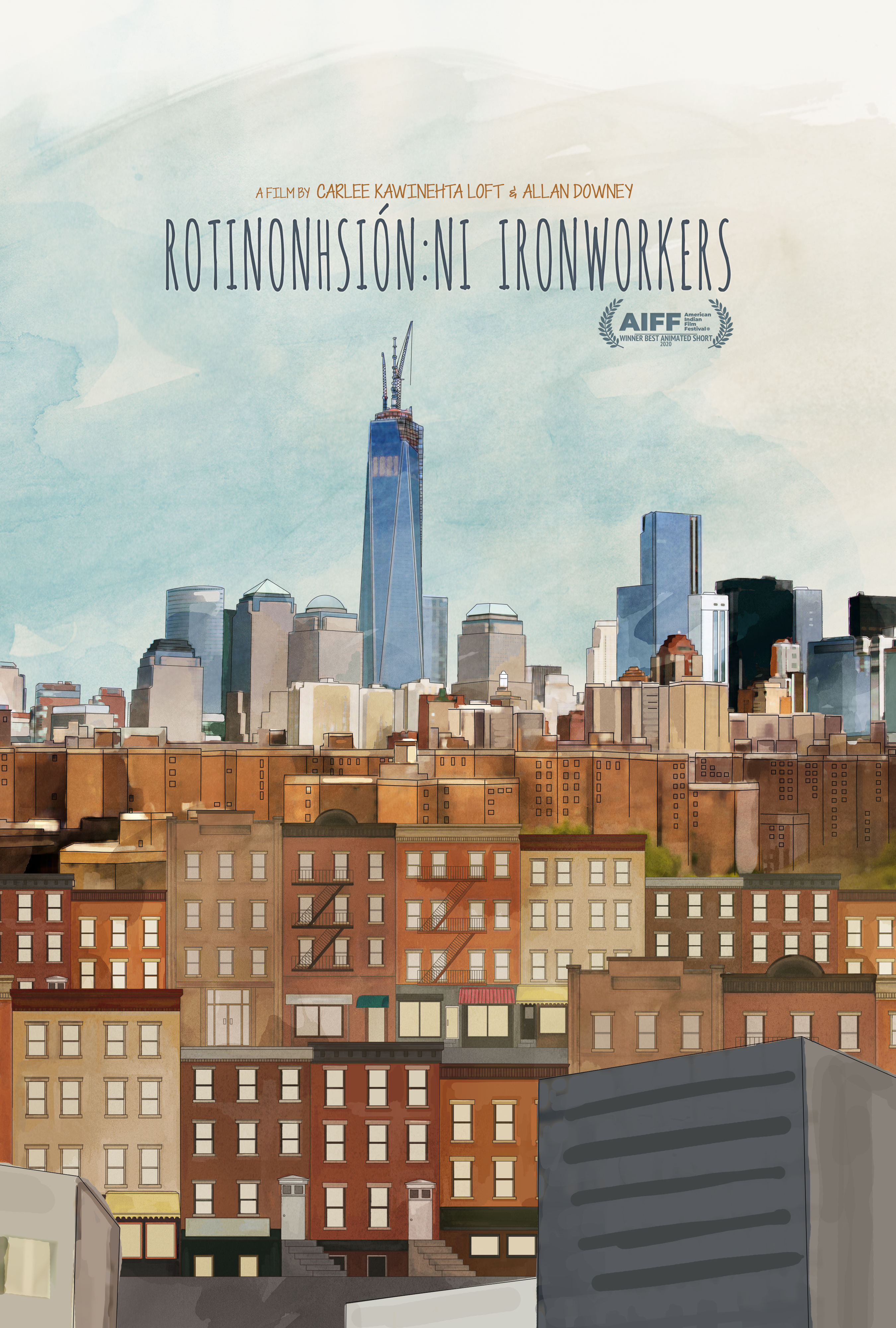
Resurgent Histories on CBC Ideas
Indigenous scholar Allan Downey shares the little-known history of Indigenous ironworkers and how it fits within a growing trend of “Resurgent Histories” in Indigenous history by Indigenous historians. https://www.cbc.ca/radio/ideas/how-mohawk-ironworkers-from-kahnawake-helped-build-new-york-s-skyline-1.6576316
Rotinonhsión:ni Ironworkers Selected as a Finalist for the New York Animation Film Awards
Co-directed by Allan Downey and Carlee Loft with animations done by Saki Murotani and in partnership with the Kanien’kehá:ka Onkwawén:na Raotitióhkwa Language & Cultural Center and Six Nations Polytechnic, the digital animation documentary Rotinonhsión:ni Ironworkers was selected as a Finalist for the 2021 New York Animation Film Awards.
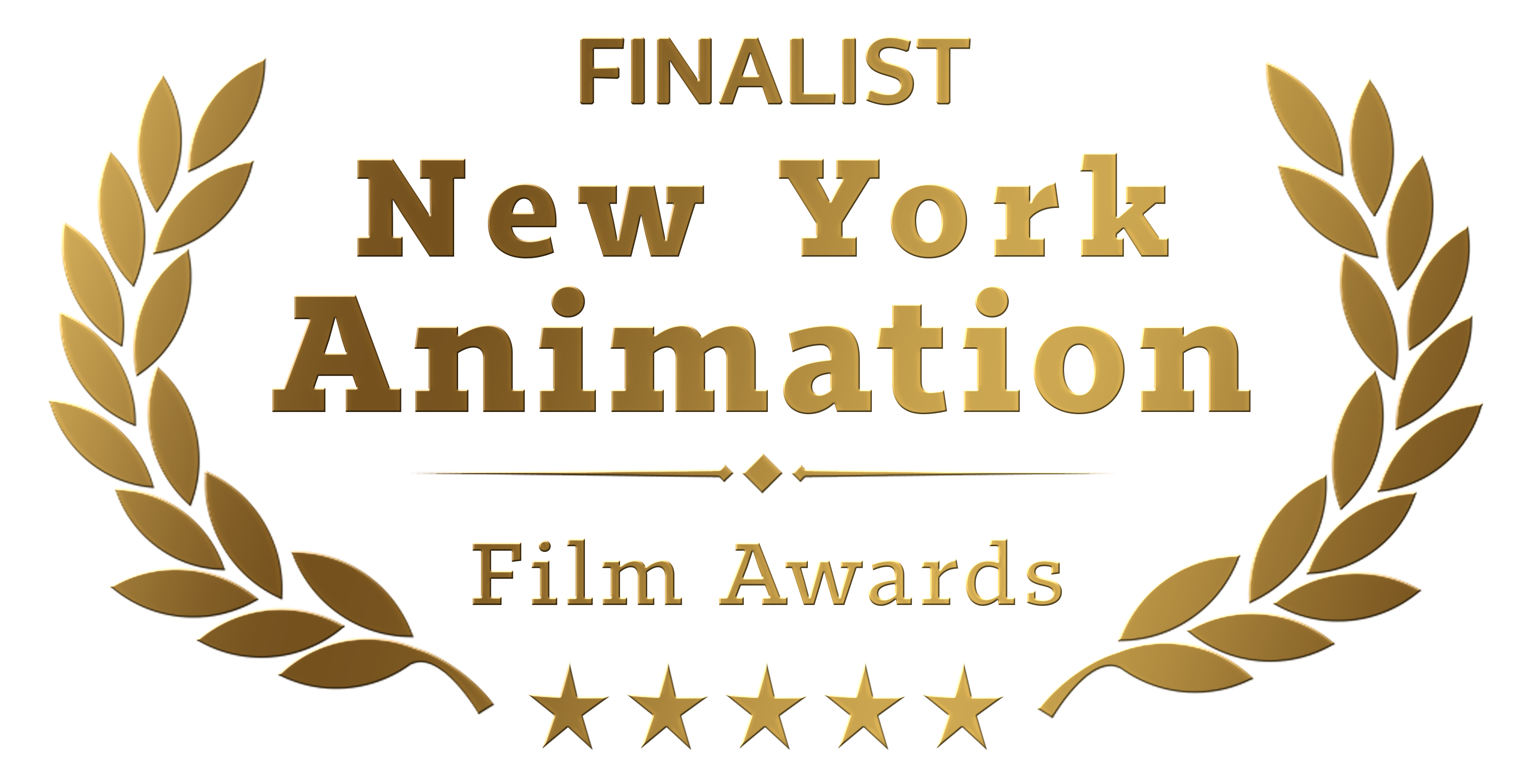
Rotinonhsión:ni Ironworkers Receives 2020 AIFF Best Animated Short Award
Co-directed by Allan Downey and Carlee Loft with animations done by Saki Murotani Rotinonhsión:ni Ironworkers was selected to the 2020 American Indian Film Festival in San Fransisco and received the award for Best Animated Short.

The Creator’s Game: Lacrosse, Identity, and Indigenous Nationhood
*Awarded the 2019 Federation of Humanities & Social Sciences Canada Prize
*Awarded the 2018 Canadian Studies Book Prize https://bit.ly/2JkluE6
*Awarded the 2019 Honourable Mention for the CHA’s Indigenous History Book Prize
*Short-listed for the 2019 Wilson Institute’s Canadian History Book Prize
Lacrosse has been a central element of Indigenous cultures for centuries, but once non-Indigenous players entered the sport, it became a site of appropriation – then reclamation – of Indigenous identities. The Creator’s Game, published by UBC Press, focuses on the history of lacrosse in Indigenous communities from the 1860s to the 1990s, exploring Indigenous-non-Indigenous relations and Indigenous identity formation. While the game was being appropriated in the process of constructing a new identity for the nation-state of Canada, it was also being used by Indigenous peoples to resist residential school experiences, initiate pan-Indigenous political mobilization, and articulate Indigenous sovereignty. The Creator’s Game provides a unique view of Indigenous self-determination and nationhood in the face of settler-colonialism. The book is available for purchase from UBC Press in Canada https://www.ubcpress.ca/the-creators-game or the University of Washington Press in US http://www.washington.edu/uwpress/search/books/DOWCRE.html
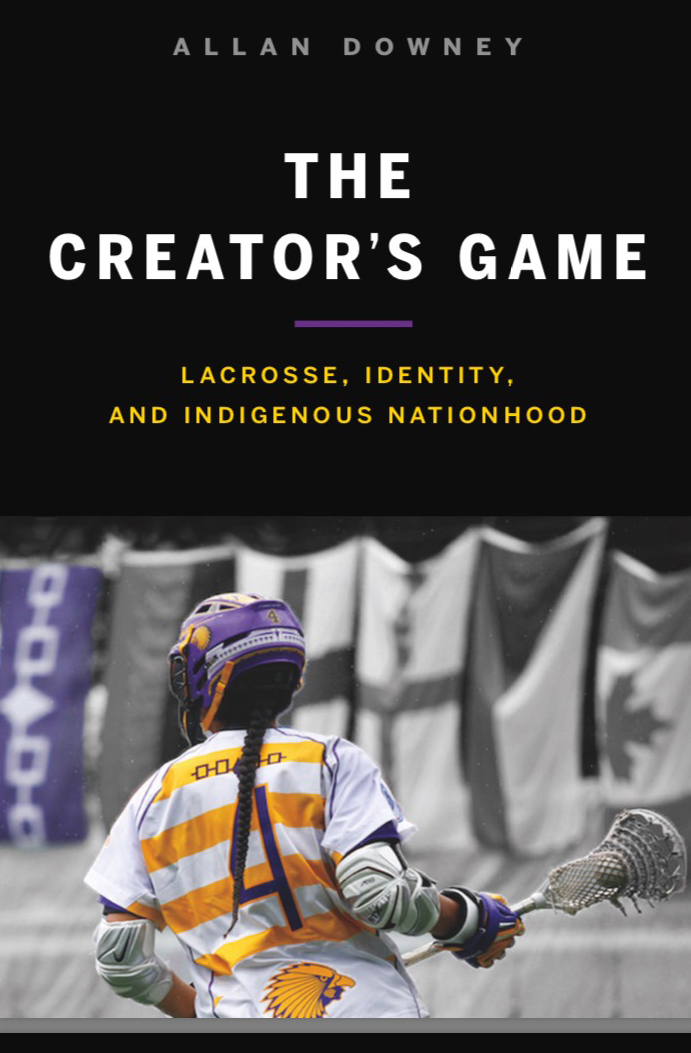
Chapter: “Claiming ‘Our Game’” in Making Men, Making History
Introduced to the Haudenosaunee version of the game by the Kanien’kehá:ka, middle-class British immigrants and anglophone Montrealers formed the Montreal Lacrosse Club in 1856 and set out to appropriate and control the image that lacrosse conveyed to Canadians. They did this by monopolizing it through a series of non-Indigenous organizations, a uniform code of rules, and new lacrosse histories. The appropriation of lacrosse as a marker of national identity by non-Indigenous Canadians and its subsequent use in residential schools as a tool to coercively assimilate Indigenous boys demonstrate how, throughout the history of Canadian settler-colonialism, a substantial method of instilling the performance of gender – the production, repetition, and “standardization” of gender identities – occurred through sport and recreation. Colonial agents attempted to re-engineer and replace Indigenous gender identities and lacrosse games became both a site and an articulation of these gendered acts, blanketed in a discourse of Canadian nationalism. One of the many Indigenous nations to experience this process was the Coast Salish Sḵwx̱wú7mesh (Squamish) Nation. Although the introduction of this performance of masculinity in the form of lacrosse was imbued with a message intended to facilitate conformity within the new gendered Canadian nationalism, the message of that performance was “interrupted” by the Sḵwx̱wú7mesh’s own interpretation of the game based on their understanding of their nationhood and identities. Introduced to the game by non-Indigenous organizers at residential schools and in the metropolis of Vancouver during the turn of the twentieth century, the Sḵwx̱wú7mesh quickly embraced lacrosse not in the pursuit of Canadian nationalism, as was the intention of the dominant society, but as an Indigenous game and as citizens of the Sḵwx̱wú7mesh Nation. The chapter can be found in Making Men, Making History https://bit.ly/2qxeOue. You can also see my other recently published articles here mcgill.academia.edu/AllanDowney

Article: “Playing the Creator’s Game on God’s Day”
*Awarded the 2017 CHA Aboriginal History Article Prize (bit.ly/2rM8FLy)
Examining the history of Indigenous resistance to the imposition of colonial laws, “Playing the Creator’s Game on God’s Day” explores how lacrosse was used to fund the Haudenosaunee’s self-determination efforts and their League of Nations sovereignty appeal in the early 1920s. The article can be found in the Journal of Canadian Studies http://bit.ly/2aomgOj. You can also click on the following link to see my other recently published articles mcgill.academia.edu/AllanDowney
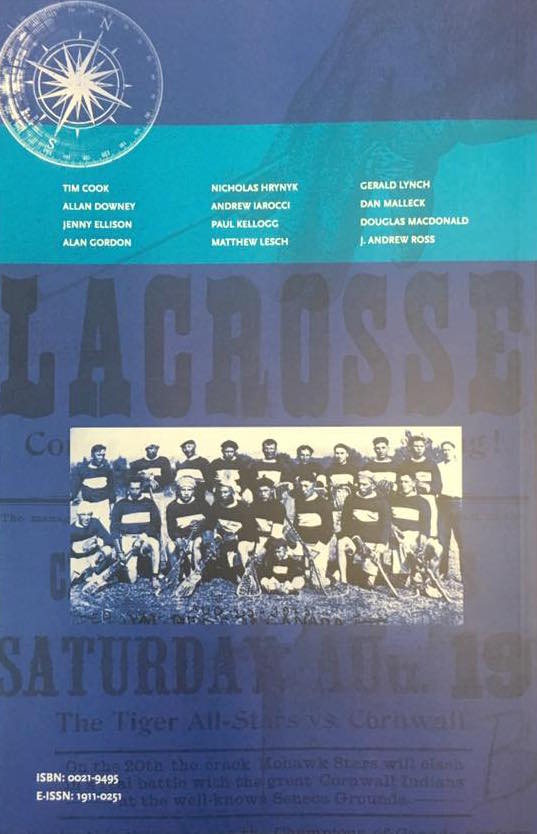
Article: “Raven Plays Ball”
Beginning in the nineteenth century, Anglo-Canadian colonial agents (residential school administrators and teachers, missionaries, and government officials) introduced a number of Western-style sporting activities among Indigenous peoples through athletic clubs, church gatherings, and school physical fitness programs. In keeping with a Victorian conception of leisure, these elites understood sports in moral terms, believing that they would support ‘‘civilizing projects’’ intended to remake Indigenous socio-cultural spaces into colonial ones. Indigenous communities, however, used these same sports organizations to challenge, resist, and even displace colonial agendas. Co-authored with Susan Neylan from Wilfrid Laurier University and published in the Canadian Journal of History, we argue in “Raven Plays Ball” that so-called ‘‘Indian Sports Days’’ in coastal British Columbia from the 1910s–1940s were complex social spaces, reflective of both Indigenous and colonial perspectives http://bit.ly/2aA6SQ0.
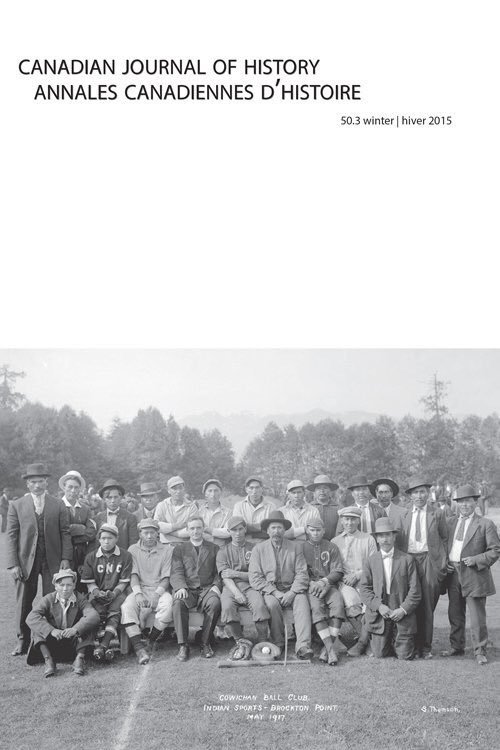
Follow at: https://twitter.com/allan_downey

